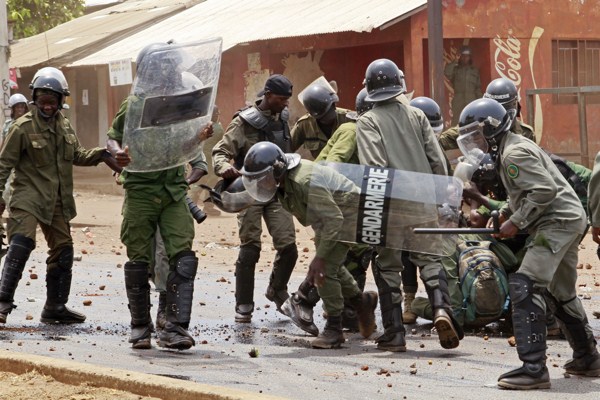Opposition supporters clashed with police in Guinea’s capital, Conakry, on Monday, with reports that more than 20 people were injured, seven of them shot. For over two weeks, the opposition has taken to the streets to protest the government’s decision to hold a presidential election Oct. 11, violating a 2013 agreement to hold local elections first.
Local elections were last held in Guinea in 2005. Though local leaders are supposed to serve a term of five years, local elections were not held in 2010, when the country was still transitioning back to democracy after a military coup in 2008. At the time, holding a presidential election was considered the priority. After the first free and fair presidential election in Guinea’s history took place in November 2010, the opposition pushed for scheduling local elections as soon as possible, but they still have not been held.
That hasn’t prevented the government from meddling in local politics, however. Since coming to power in 2010, President Alpha Conde has banned municipal councils sympathetic to the opposition and has replaced numerous local council members across the country with his supporters. The opposition wants a nationwide election to try and unseat many of those Conde loyalists and ensure that local leaders actually reflect popular will.

